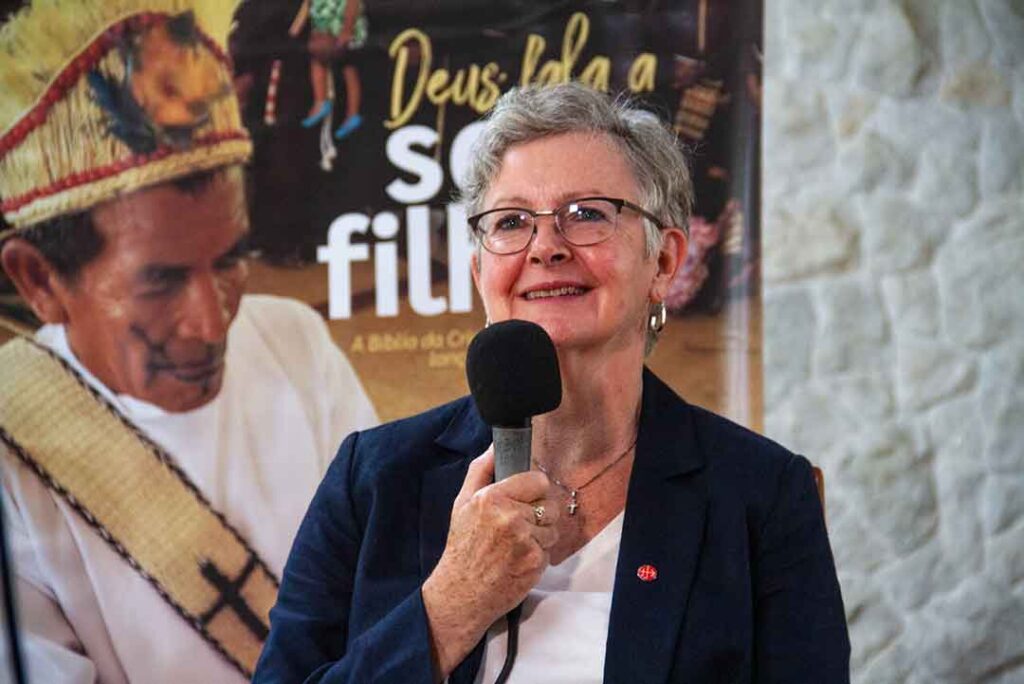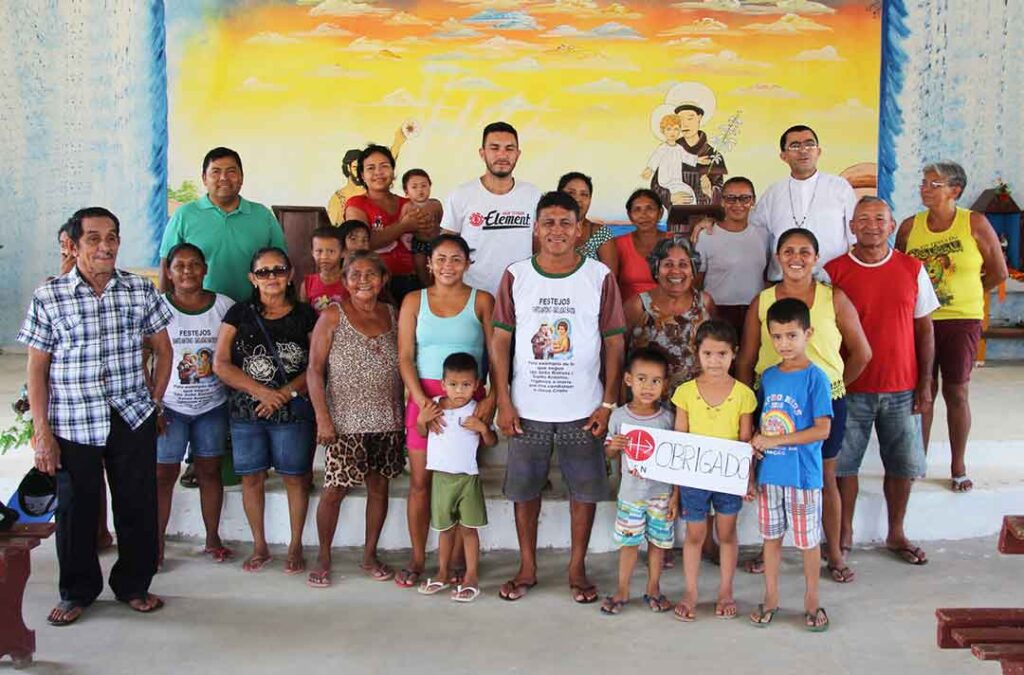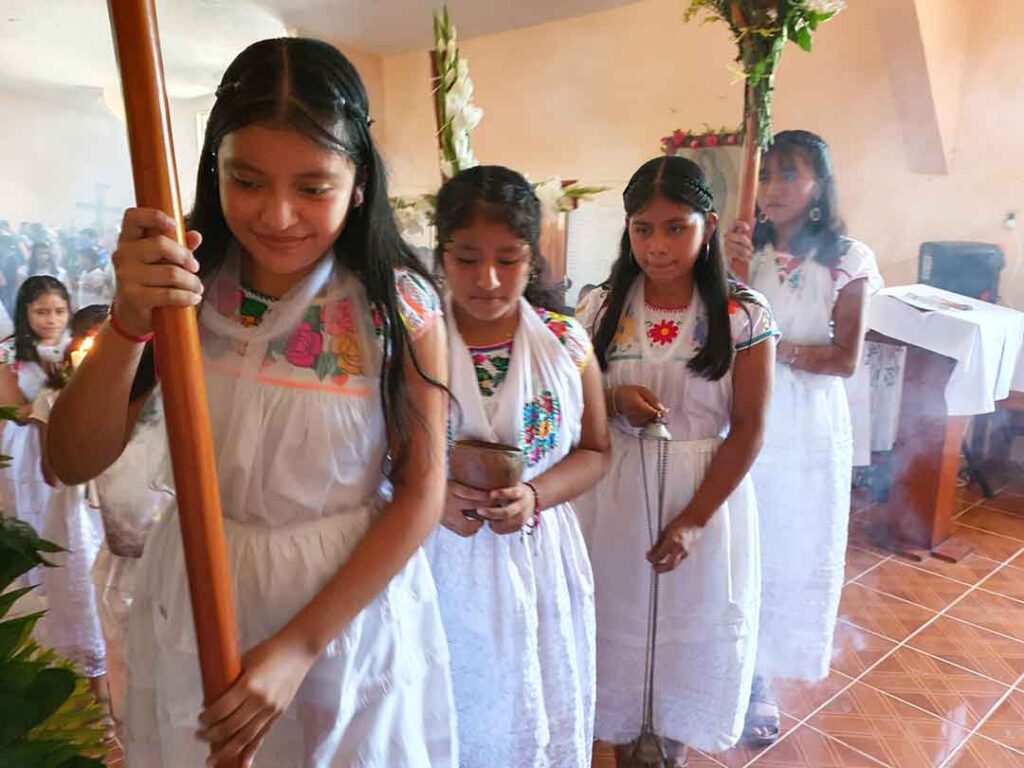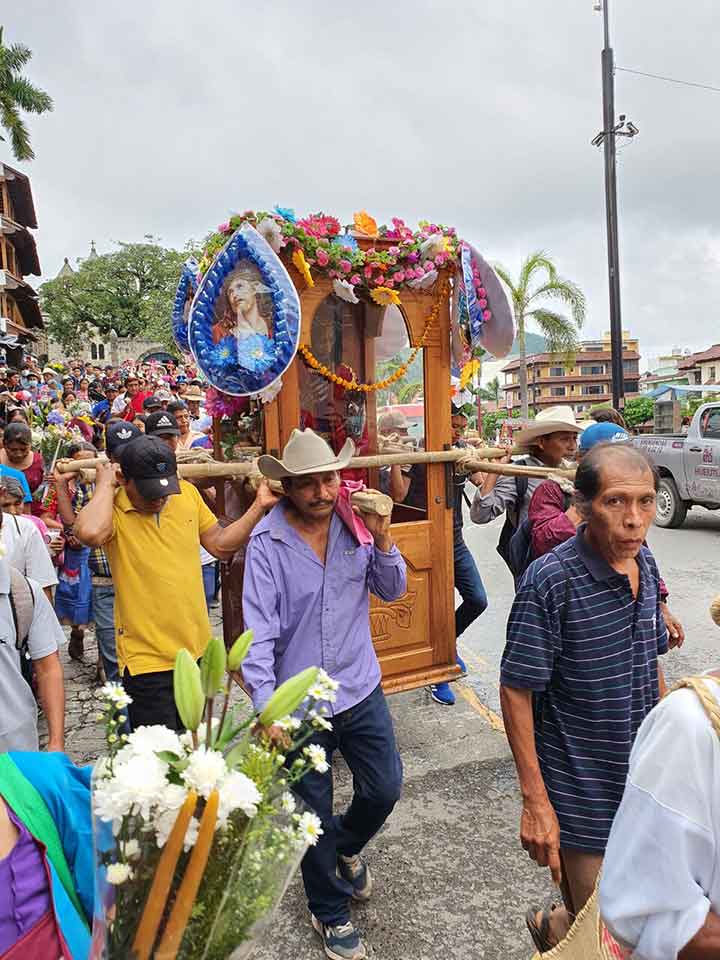The executive president of Aid to the Church in Need (ACN) recently returned from a tour of the Latin American national offices. Following her trip to Chile, Brazil, Colombia and Mexico, Regina Lynch spoke about the challenges these countries face.

You have just returned from a trip to the Latin American national offices. Why did you choose these for this visit?
I really wanted to visit the Latin American offices because these are all cases of countries that had been recipients of aid from ACN, but now have their own fundraising as well, and I thought that was worth highlighting. It is wonderful that the people can look beyond their own suffering and realise that there are Christians in other countries whose situation is even worse than theirs.
Your first stop was Chile. What is the situation there at the moment?
Chile, in fact, was the first Latin American Church we helped, back in 1962, so that is quite a long time ago. It is a country that has a long history of political differences, the Church has also suffered in recent years because of the sexual abuse scandals, and since 2019 there has been a series of arson attacks on churches, which have continued until now. It is not an easy situation at the moment, nor is it an easy situation for a Catholic organisation such as ourselves then to come and ask for support for Christians who are suffering in other parts of the world. Nonetheless, our benefactors step up, and they do help. I think that is because they are very aware how difficult their own situation is.
You mentioned that Chile was one of the first countries to be supported by ACN. Does the foundation still have projects in Chile?
In Chile we concentrate a lot on formation, namely of seminarians and of laity. It is very important in challenging times in society that Catholics are well grounded in their faith, that they understand it very well. Unfortunately, because of the attacks against churches and chapels, we are also called upon to help renovate and rebuild the ones damaged in fires.
What impressed you most?
We visited many poor parishes where there is a lot of violence due to the narcotics trade. But it was very encouraging to see plenty of new religious communities, from countries like Brazil and Argentina, and even two priests from Nigeria, full of missionary spirit, very close to the poor, helping to uplift and give them hope in their faith.

Your next stop was Brazil, a country ACN has been working with for many years.
Yes, indeed, since the 1960s. Around 25 years ago we opened a national office, to see if this recipient country could also become a donor country, and it has been so positive that it covers the projects ACN supports in Brazil
But what is significant for me, and was very impressive, is that the majority of our donors in Brazil are very poor people. The average donation in Brazil is about four euros, and many of those benefactors are actually people who live in the slums, who struggle to survive themselves, and make great sacrifices to support ACN. One lady, for example, washes clothes for a living, and what she earns on Saturday she gives to ACN. It is just like the parable of the widow’s mite.
You mentioned poverty, and ACN has many projects in the poorer areas of Brazil, such as the Amazonian region, but what other challenges does the Church face?
Catholics are still around 60 to 65%, but every year the number is decreasing. There are many evangelical sects, and Catholics are leaving the Church, going to the sects. There is also a lot of violence due to the drug trade. I visited some very poor areas in São Paulo, which even the police don’t dare enter, but also here as I mentioned for Chile, I was so impressed by the new ecclesial movements, including consecrated laity and priests who live in these slums with the people, doing work of evangelisation, including with schools, and who are widely respected by the population.

Another thing which I found very inspiring was to see a chapel in a shopping mall in Rio de Janeiro. There are five or six shopping mall chapels in Rio, under the responsibility of the Archdiocese, and this is really a way of reaching out to the ordinary public, offering them daily mass, confession and faith formation. It is very innovative. Pope Francis says to go out, and to evangelise in the peripheries. We know there is a huge move to the urban areas in a lot of Latin American countries, and the Church must be present. If the people are not coming to the parishes, then you go to the people.
You then visited Colombia, what is special about this country?
Colombia still has a lot of vocations to the priesthood, but it has also known an extreme amount of violence, with guerrilla warfare and, like in many Latin American countries, the whole question of narcotics. It has also legalised abortion and euthanasia, for example, so though the Church is very strong, it needs to lead its people through this difficult terrain.
The Church in Colombia has also been very important in supporting Venezuela. They have many refugees from Venezuela, and the bishops have also been reaching out to their brother bishops, to show their solidarity and to find the best ways to help the refugees.
Your tour ended with Mexico, a country where several priests have been murdered recently…
In Mexico we met with the bishops’ conference, to hear about the situation of the society and the Church in Mexico. It is one of the most dangerous countries in the world for priests. There is so much organised crime, anticlericalism, a long history of persecution of the Church, and if anybody, any priest, dares to speak out about this they can pay for it with their lives. There were two Jesuits assassinated just over a year ago.

ACN is currently supporting a meeting in Puebla, a national dialogue for peace, bringing together the Catholic bishops, religious, laity and other groups to try to see how the Church can move forward and help society to come to some sort of peace, and it came about after the assassination of the Jesuits. We recognise that if there is any hope of change in the Mexican society, the Church is the best placed to be an instrument to help make those changes.
Besides this, there is the whole question of the migrants coming from Central or South America who travel through Mexico on their way to the United States. They are victims of a lot of violence by organised groups, by the narcotics leaders, bandits, sometimes the local authorities. The Church is one of the few bodies that reaches out in a big way to help these migrants both socially and pastorally, and I get the impression that this is not always recognised by the state, which is really a great pity.
